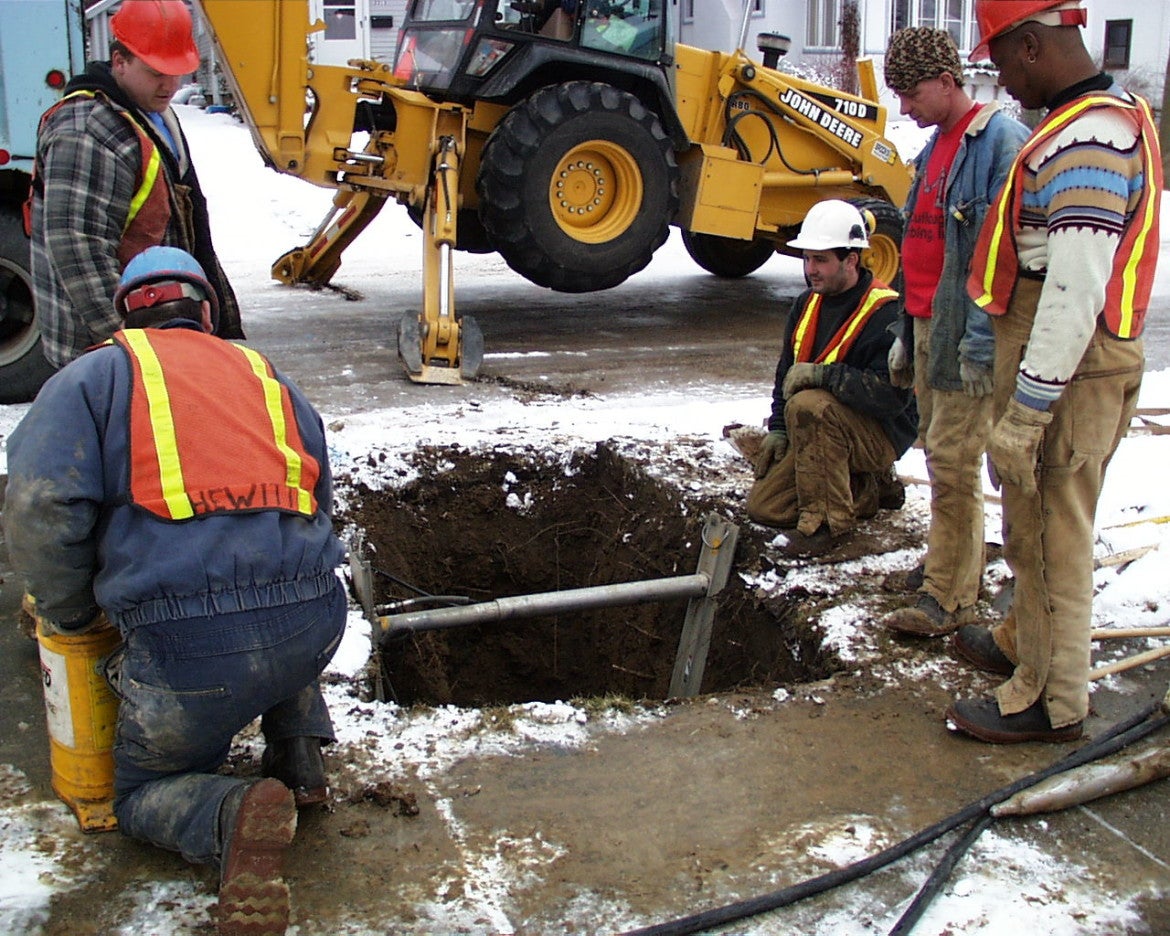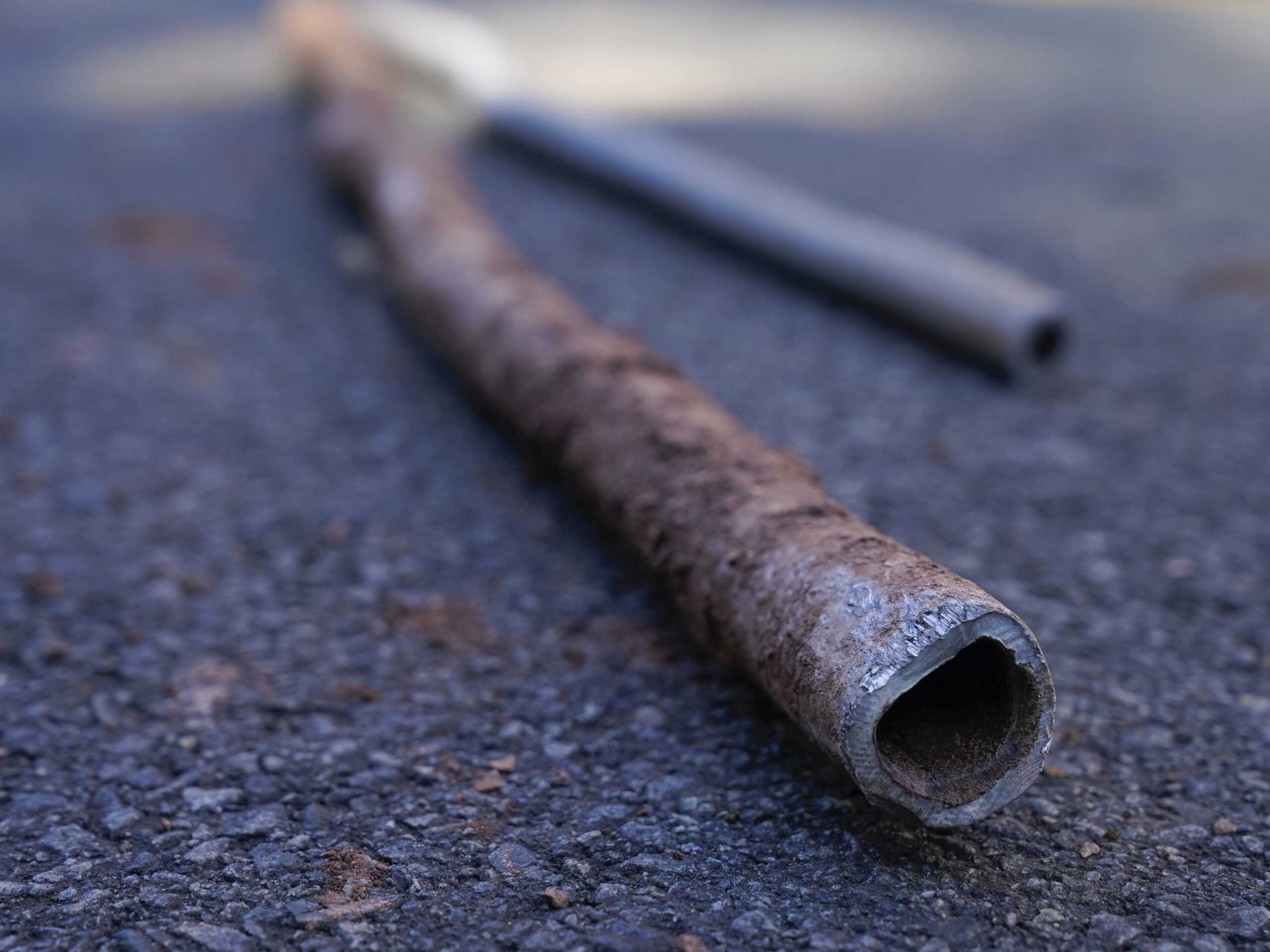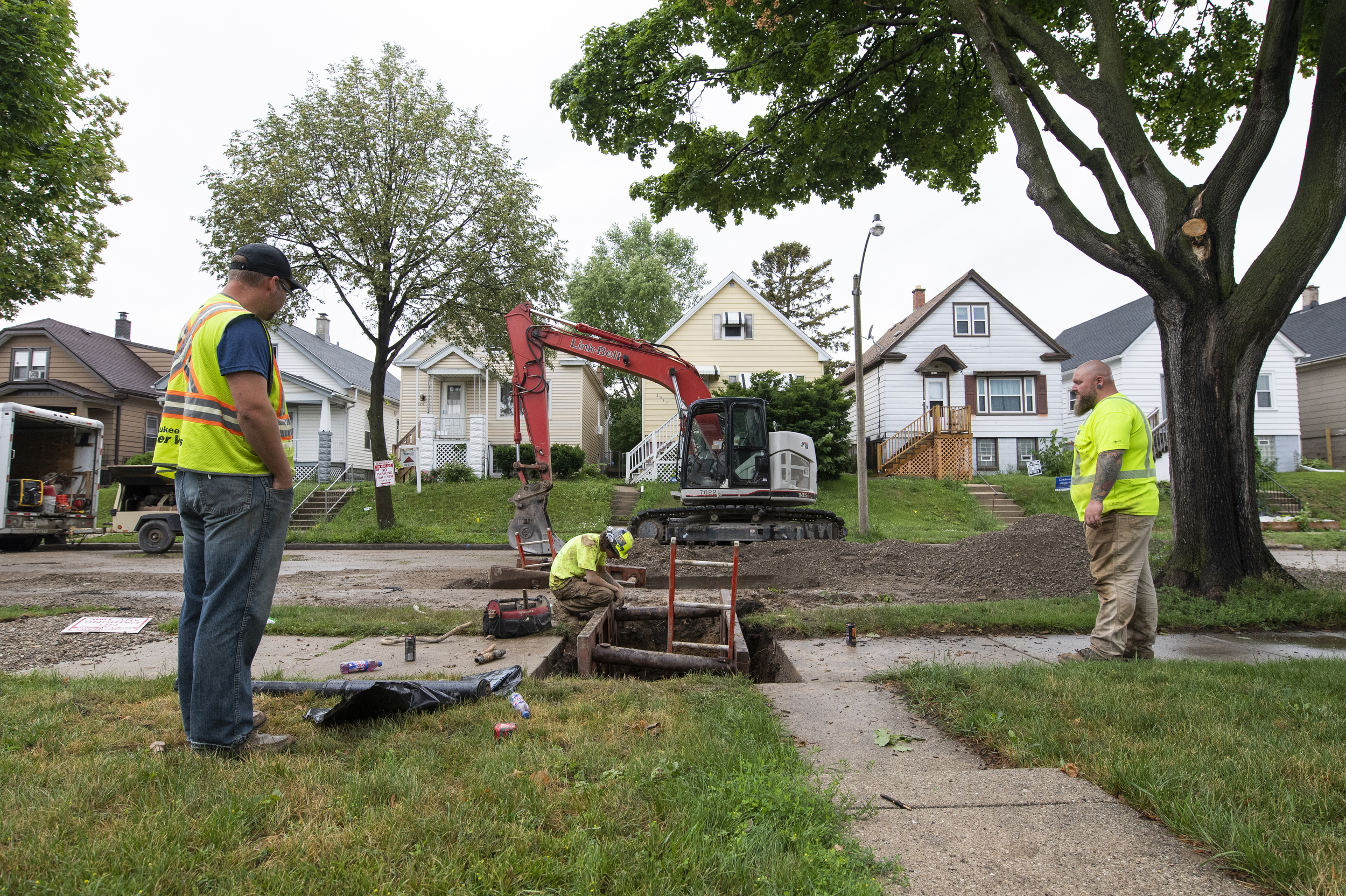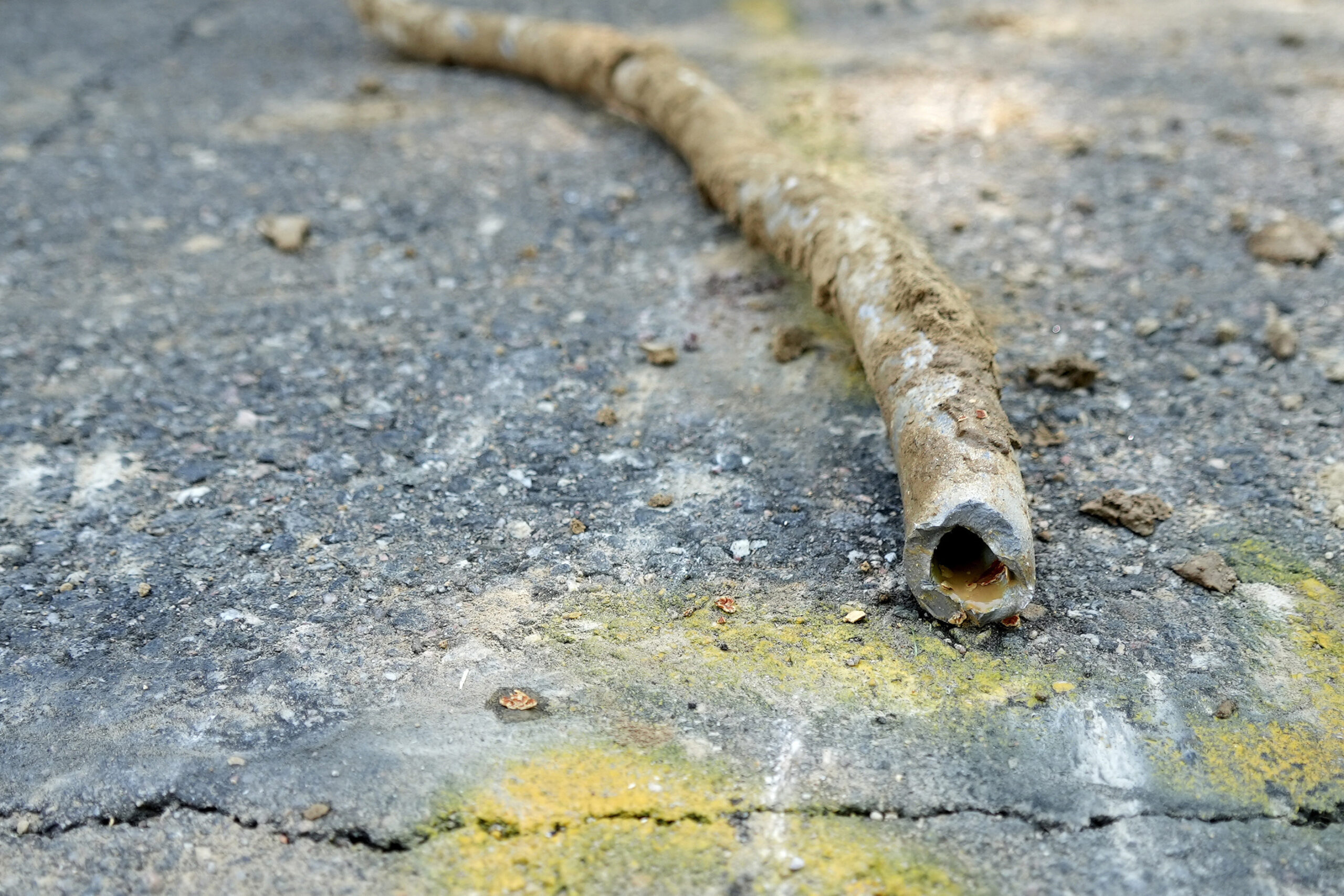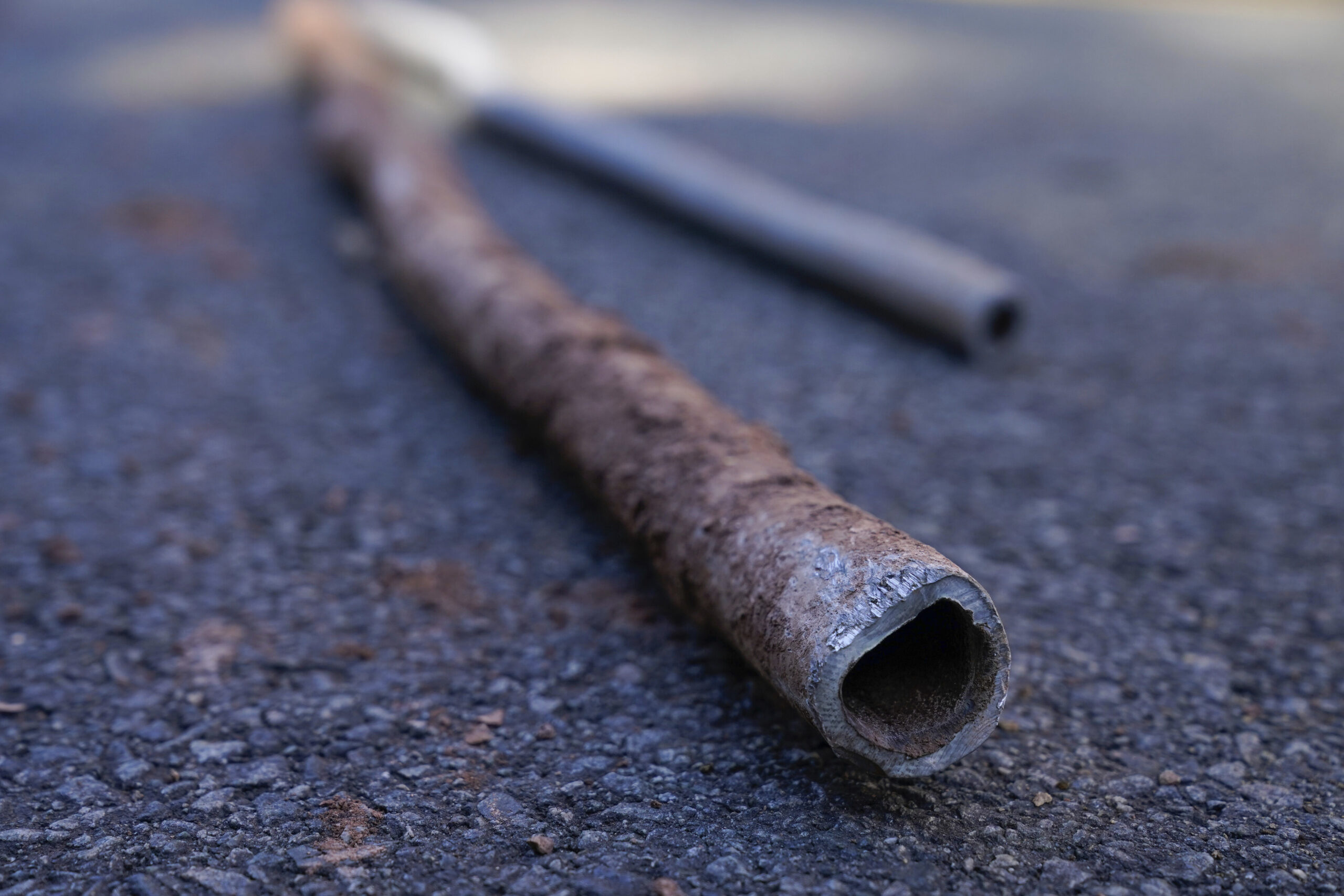The state Department of Natural Resources announced a plan Wednesday to make funding available for municipalities to replace aging lead water pipes. The agency plans to make $11.8 million in grants available starting in July.
The money will go to municipalities to replace some of the state’s approximate 176,000 lead service lines that connect homes and businesses to municipal water.
The DNR said it will make money available to water utilities to subsidize or pay for replacement of homeowners’ portions of the lead service lines that run from the curb to the house. Replacement of those segments costs about $3,000 per home, the DNR said.
Stay informed on the latest news
Sign up for WPR’s email newsletter.
DNR Secretary Cathy Stepp said the program was made possible by a recent decision by the U.S. Environmental Protection Agency to allow states to use federal funds for lead service line replacement on private property.
Stepp said there’s “no doubt” that lead pipes carrying drinking water into homes cause concern and conceded that the grant program tackles only part of the issue.
“This doesn’t address obviously lead plumbing inside people’s homes, and certainly some of the older homes would still have those issues to address,” Stepp said. “But for the very first time we’re looking to be able to use public monies to be able to address what has been the private landowners’ responsibility.”
Milwaukee has about 70,000 lead service lines, which the Milwaukee Water Works has estimated would cost half a billion dollars to replace. Madison is thought to be the first city in the nation to replace all of its lead service lines, a decade-long project that began in 2001.
The dangers of lead in drinking water have been highlighted by the crisis in Flint, Michigan, where corrosion from a new water source sent unsafe levels of lead into homes, doubling the rate of lead poisoning among children. Lead exposure can cause irreversible brain damage in children, as well as miscarriages.
Madison-based chemical engineer and water quality consultant Abigail Cantor said she’s pleased with the DNR proposal.
“It’s a good start, let’s just say that,” she said. “It’s a very expensive undertaking and it will at least get utilities on the way.”
Details of the program still are being worked out, but the agency proposes that communities with 50,000 people or less could receive up to $300,000; medium-sized communities would get up to $500,000 and Milwaukee could qualify for up to $750,000. The program is scheduled to begin July 1 and will be renewed in 2017 if it is successful, the DNR’s Stepp said.
Editor’s note: This story has been updated with additional comments from Cathy Stepp. Chuck Quirmbach contributed reporting.

